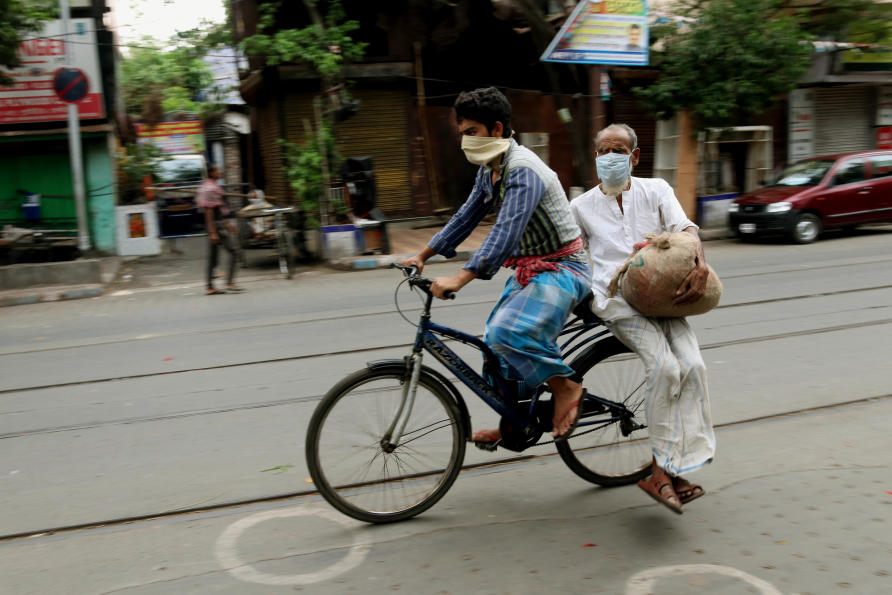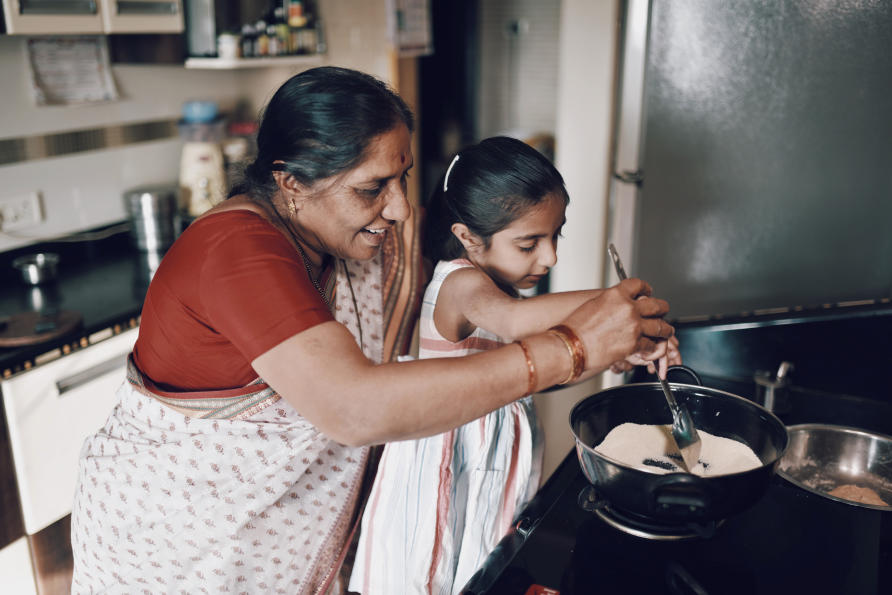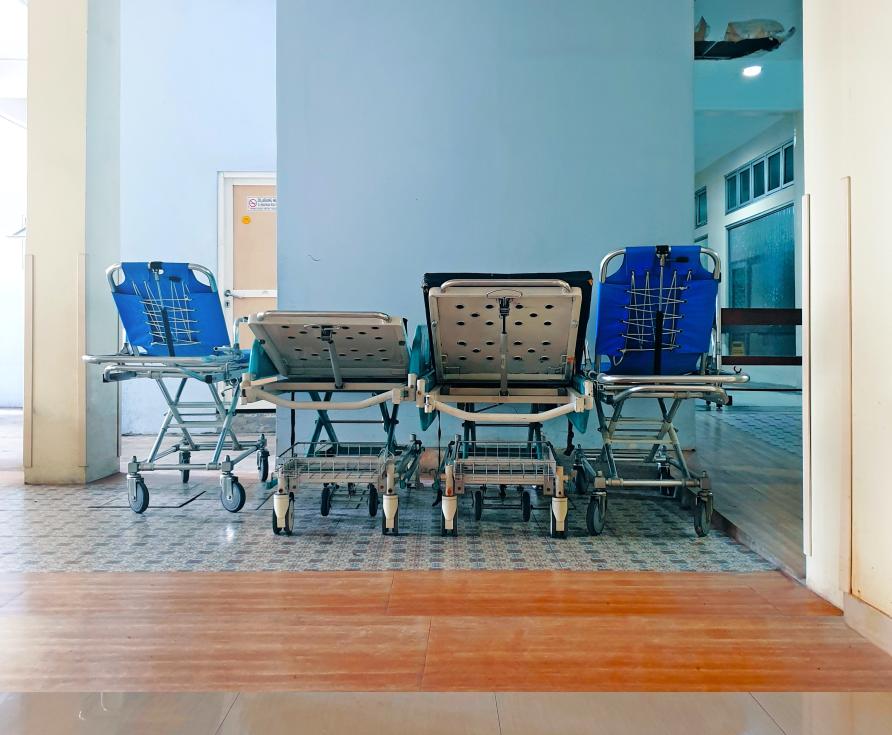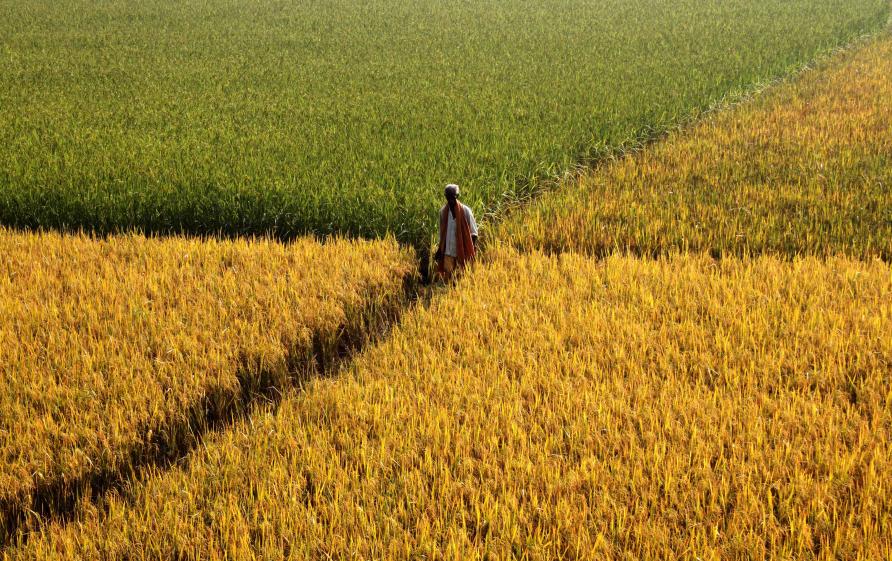India has the second-largest population in the world and although it has a relatively young population, there are 139.6 million people aged over 60 years old.
COVID-19, and the efforts to prevent its spread, poses unique challenges to the elderly in India, 70 per cent of whom live in rural areas.

The elderly have a far greater risk of dying from COVID-19 than the young. However, it isn’t just the direct effects of the virus that increase morbidity and mortality in the elderly.
India’s strict country-wide lockdown – which began on 25th March and has now been extended to 31st May – poses several challenges.
Measures like social distancing, self-isolation and travel restrictions disproportionately disrupt livelihoods of the elderly and their access to routine but life-preserving healthcare.
One of the most effective COVID-19 prevention strategies has been to advise the vulnerable, especially the elderly and those with disabilities, to self-isolate at home. But, strong intergenerational social ties and living arrangements can make physical distancing difficult for the elderly.
About 88 per cent of the elderly in India cohabit with their children, so their risk of infection from other family members remains high.
Living with extended family may allow continuity of services for the elderly. However, for the 17 million that don’t live with extended family, or have made arrangements to live separately due to COVID-19, it can pose considerable challenges in accessing food, water and basic services.
The elderly often depend on domestic helpers and neighbours, if not family, for support in daily activities. In a lockdown, it is difficult or illegal to visit the elderly and domestic helpers aren’t permitted to assist.

There are reports from European countries documenting many elderly people dying at home having been unable to access essential care.
To what extent this will be evidenced in India remains uncertain.
Technology and internet connectivity play an important role in navigating social distancing restrictions and maintaining access to essential care, services, and important information.
Inn India only seven per cent of the elderly have smartphones and internet access. Literacy rates among the elderly are also lower, further limiting access to technology and important information.
The containment approach to controlling COVID-19, essential in some form, has severely restricted routine health care, pathology services and non-emergency surgeries. This will have an effect on the health and wellbeing of vulnerable populations both in the short and long term.
For example, cancer screening can be very effective in preventing the development of inoperable or incurable cancer but the effect on cancer mortality will only be felt in the coming years.
The elderly are much more likely to have non-communicable diseases like cancer, double the rate of disability and experience poorer mental health. This leads to a higher dependency on and higher usage of routine healthcare.
Therefore, social distancing measures and the lack of access to healthcare services may intensify physical disabilities, precipitate occurrence and recurrence of mental ill-health and decrease the effective management of non-communicable diseases.

Outpatient treatment of all major non-communicable diseases has declined dramatically in India since March. For instance, outpatient treatment of oncological illness has decreased by 70 per cent and treatment of heart disease halved.
Considering that many hospital visits by the elderly relate to chronic diseases, we can assume that worryingly high numbers of older people will miss treatment for illnesses like heart disease, diabetes, hypertension, asthma and cancer.
Under-treatment or delayed detection and treatment will increase morbidity and mortality.
The precarious nature of much work done by the elderly and the inadequate pay, mean more than 80 per cent of the elderly are either partially or fully dependent on others for their economic security.
The restrictions make this worse as older people are being advised to strictly self-isolate for a longer time than the general community which will limit their ability to work.
Given the majority of older workers are daily wage labourers who are employed informally, and so lacking protections and entitlements, they are less likely to earn an adequate income.
In its first COVID-19 relief package, the Government has announced a one-off payment of Rs 1,000 ($A20.30) and an increase in the pension by 11 rupees ($A0.22) per month for 30 million widows and senior citizens.
But this will reach only about 20 per cent of the elderly, and only partially. There was no support for senior citizens in the government of India’s second relief package.
So, will the elderly be able to meet their basic needs during the lockdown?

Five things can be done to protect the elderly and those with multimorbidities while they safely self-isolate at this time of increased vulnerability:
- Data used to provide assistance needs to be disaggregated by age. To protect vulnerable populations (including those with a disability and pre-existing co-morbidities as well as the elderly) we need to be able to count them.
- The government needs to ensure access to health care through schemes like Ayushman Bharat Yojana. Where possible, tele-health and mobile home-based health care check-ups should be conducted for the elderly and vulnerable in times of home isolation.
- Financial and health security for the elderly needs to be increased. For example, a pre-existing proposal could now be enacted to utilise Rs. 100 billion ($A2 billion) of unclaimed funds from the government’s Employee’s Provident Fund Organisation to directly subsidise vulnerable pensioners. This would function as an extension to ongoing general insurance (Pradhan Mantri Suraksha Bima Yojana), and the pension plan (Atal Pension Yojana). There is a no more pressing time than the present to implement proposals like this for the health and wellbeing of the elderly.
- Social support also needs to be increased. While several non-government organisations (NGOs) and trusts are working on support options for the elderly, the government can increase its engagement with local NGOs to improve access to information and day-to-day necessities.
- Finally, in the face the social restrictions, ways must be found to better connect the elderly to family and friends. Never has there been a more compelling case for virtual connectivity. Supporting self-isolating older people to use technology to interact with family and friends is important to promote wellbeing.
Sadly, it is likely that many elderly people will succumb to COVID 19 in India.
While they need to be protected from the virus, it is imperative to also act to prevent the elderly from exposure to greater morbidity and mortality resulting from the measures taken to mitigate the virus.
Thanks to Bethany Carr and Nicole Butcher of the University of Melbourne for their help in writing this article.
This article was first published on Pursuit. Read the original article.
Banner: Yawar Nazir/Getty Images




